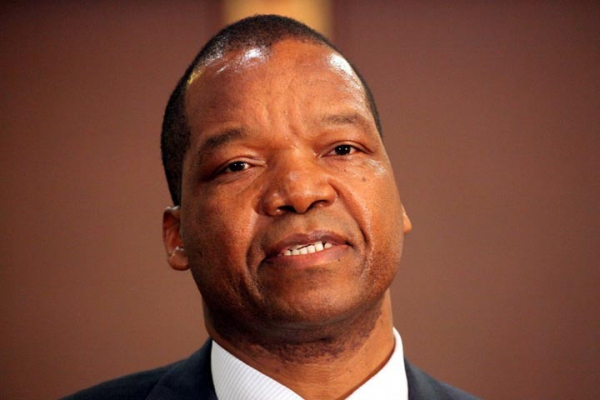
Kudzai Kuwaza THE Mid-Term Monetary Policy Statement presented last week by the Reserve Bank of Zimbabwe (RBZ) governor John Mangudya will do little to inject the much-needed confidence in the economy and could have an adverse impact on economic growth and investment, analysts have said.
Mangudya’s presentation comes at the backdrop of a debilitating liquidity crunch, foreign currency shortages, currency volatility and runaway inflation which has soared to 256,9% in July this year, up from 56,37% during the same period last year.
Among the highlights of the MPS was the announcement that the central bank will introduce smaller and more affordable gold coins in the market to ensure wider access to the unit by the country’s citizens.
Mangudya revealed that smaller denominations of gold coins, which were put in place to mop up excess liquidity in the market, as well as act a store of value, will be introduced into the market in November this year. Other measures include the review of interest rates in line with inflationary developments, the extension of statutory reserve requirements to foreign currency deposits for call, time and savings deposits and the changing of the foreign currency allocation system from being a price discovery mechanism to a foreign currency allocative platform.
In an analysis of the measures by the RBZ, stockbroking firm, FBC Securities, cautioned against the reviewing of interest rates in line with inflationary developments pointing out that this will militate against investment and economic growth. Should inflation remain elevated, interest rates are likely to be reviewed upwards to curb speculative activity and tame money supply.
“Increasing the cost of borrowing will likely weigh down aggregate investment, further limiting desired growth projections,” FBC warned “ Whilst this will anchor inflationary pressures, it is inversely related to investment spending, limiting desirable economic growth.”
On the extension of statutory reserve requirements to foreign currency deposits for call, time and savings deposit, FBC pointed to the confidence deficit in monetary authorities being a major impediment.
“The differential system is meant to encourage banks to promote savings deposits necessary to support long term productive lending in foreign currency,” the stockbroking firm prescribed. “However, confidence deficits largely contribute to reluctance in depositing foreign currency with banks. The underlying issues affecting confidence would need to be addressed to encourage foreign currency deposits.”
- Chamisa under fire over US$120K donation
- Mavhunga puts DeMbare into Chibuku quarterfinals
- Pension funds bet on Cabora Bassa oilfields
- Councils defy govt fire tender directive
Keep Reading
FBC Securities pointed out that the changing of the foreign currency allocation system from being a price discovery mechanism to a foreign currency allocative platform needs to be complemented by allowing the willing-buyer willing-seller platform to freely float
“Exchange rates largely being determined by rates obtaining on the willing-buyer willing-seller platform will potentially result in a truer reflection of the rates on the official auction,” FBC noted. “The previously controlled nature of the official rates was a major contributor to the parallel market exchange rate premium and the resultant price distortions and arbitrage opportunities.
“However, the willing-buyer willing-seller platform should be allowed to freely float as a measure to totally eliminate arbitrage opportunities and rent-seeking actions within the economy.”
On the introduction of gold coins of smaller denominations, FBC said although smaller denominations of the gold coins will likely make them more accessible to the ordinary investor, lack of divisibility of the physical coins means investors will not be able to take physical possession of the smaller denominations.
“Existing trust issues with the issuer may result in dampened demand for the smaller denominations should investors be unable to physically hold the coins,” the stockbroking firm warns.
Economist Chenayi Mutambasere said the selling of gold coins in local currency is detrimental to the value of the gold in the country.
“The MPS says the interchange auction has a backlog of US$169 million. Ninety percent of the 4 475 gold coins sold in RTGS raised US$4,1 million. That’s 98 450 carats of gold, which if sold as bars would raise US$177 million,” Mutambasere wrote on micro-blogging site Twitter
She queried how much it would cost making them externally and the loss the country would make when they are sold in the depreciating Zimbabwe dollar when foreign currency had been used for the production of the mineral unit.
On the RBZ’s revelation in the MPS that the central bank is working with local and external partners to unlock offshore line of credit to support the country’s forex needs, Mutambasere questioned why government is not using the Special Drawing Rights it received from the International Monetary Fund instead.
Economist Prosper Chitambara said although the introduction of smaller gold coins would ensure wider inclusivity of owners of the mineral unit, it will do very little in ensuring market stability.
“The move is aimed at addressing equity issues to ensure that the gold coins are accessible to the generality of the country’s citizens but in terms of the impact on stability, it will have some positive impact but I do not think it will be very significant,” he said.
Chitambara said the issuance of gold coins will not do much in terms of tackling the problem of high inflation and exchange rate volatility as the major drivers of inflation are the government financing to contractors for infrastructure projects as well as the financing of the agricultural sector among others.
These, he said, are the largest contributors of excess liquidity in the market.
However, in its analysis of the MPS, IH Securities said the introduction of the gold coins has contributed to the slowing down of the parallel market rate with the local unit now trading at about ZW$720 to the greenback down from ZW$850 last week.
“From mid-July, the exchange rate premium has collapsed from circa 102% to the current 49%, while the parallel rate cooled from US$1: ZW$790 to the current US$1:ZW$720,” the IH analysis noted. “Recent policy adjustments have been effective in curbing artificial forex demand driven by speculators and arbitragers.”
Allowing the tourism sector to continue retaining 100% of their forex will help the sector to fully recover from the ravaging impact of the Covid-19 lockdowns, it said.










